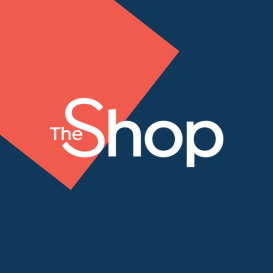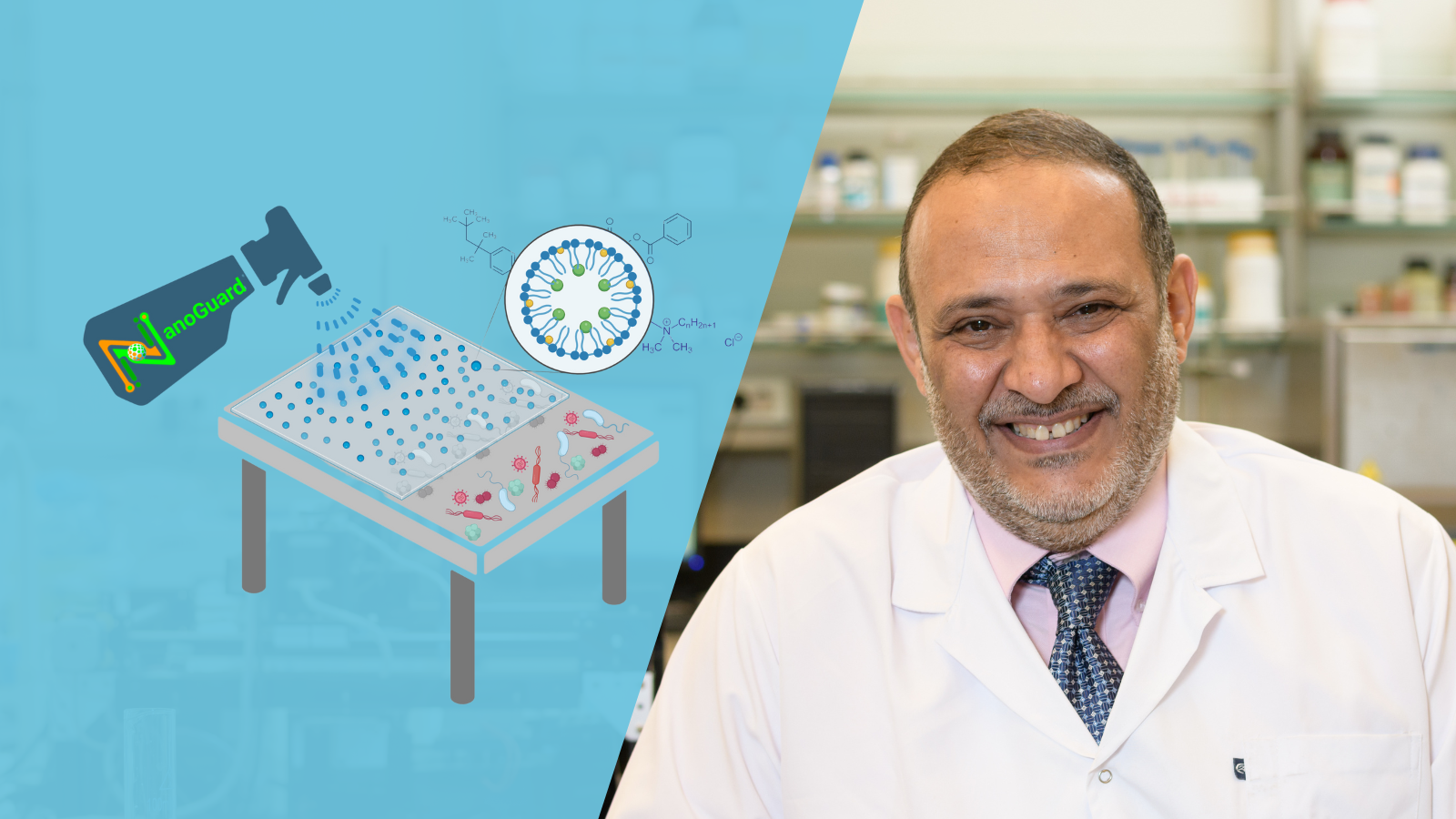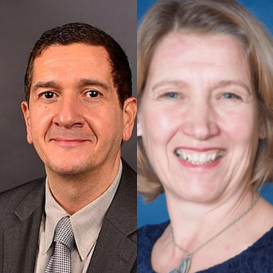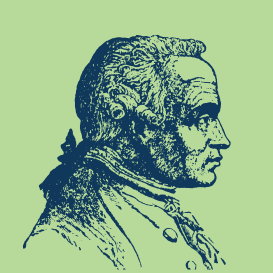A research team led by Distinguished University Professor Hassan Azzazy in the Department of Chemistry developed a novel long-term dual disinfectant formula dubbed NanoGuard. The long-lasting disinfectant, which is now patented in the United States, can be sprayed on common surfaces such as doorknobs, stair rails and elevator buttons to protect them against microbial contamination and prevent the spread of microbes to individuals.
The NanoGuard team consisted of graduate students Saif El-Din Al-Mofty in the chemistry program as well as Obaydah Abd Alkader Alabrahim (MSc ’24) and Jude Majed Lababidi, a nanotechnology master’s student at AUC. “Our success was tied to our synergy. Every objective was lined up, and we worked together to overcome obstacles,” said Al-Mofty.
The team’s disinfectant is unlike others, keeping surfaces clean in the long term without requiring special application procedures. “We designed a new disinfectant that can be easily applied to surfaces and remain active against microbes for at least two weeks,” said Azzazy.
“We designed a new disinfectant that can be easily applied to surfaces and remain active against microbes for at least two weeks.”
The product fills a niche in the world of disinfectant formulas: “Most commercial disinfectants are short term and require repeated application, while current existing long-term disinfectants are expensive and require facility evacuation as well as specialists to apply them,” Azzazy explained.
The team developed a prototype of the disinfectant over the course of one year, first selecting the short-term chemical that would kill germs upon contact and later choosing the long-term chemical. Next, they sought a method to encapsulate the two selected chemicals within nanovesicles and tested the shelf life and stability of the formula during storage. Al-Mofty said, “Once we found the formulation that was stable, clean and easy to apply on surfaces, we proceeded to the next phase of making the product user-friendly.”
The researchers obtained a patent from the United States Patent & Trade Office to protect their intellectual property, and they are currently looking to connect with international manufacturers for possible licensing agreements to produce and later market NanoGuard. “My hope is for NanoGuard to become trusted, well-recognized and capable of protecting homes, universities and families from future pandemics,” said Al-Mofty.
The NanoGuard team was selected as a finalist for the 2024 Johns Hopkins International Healthcare Design Competition. The results of the NanoGuard research were initially published in Nanoscale Advances under the title “A novel long-acting antimicrobial nanomicelle spray.”










